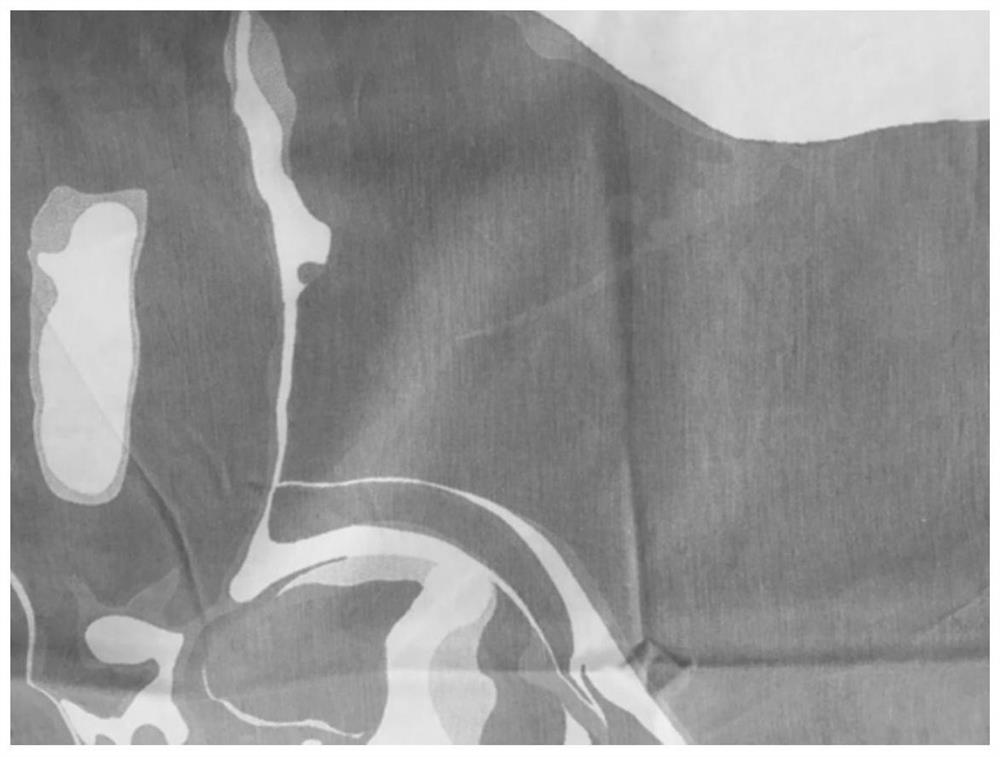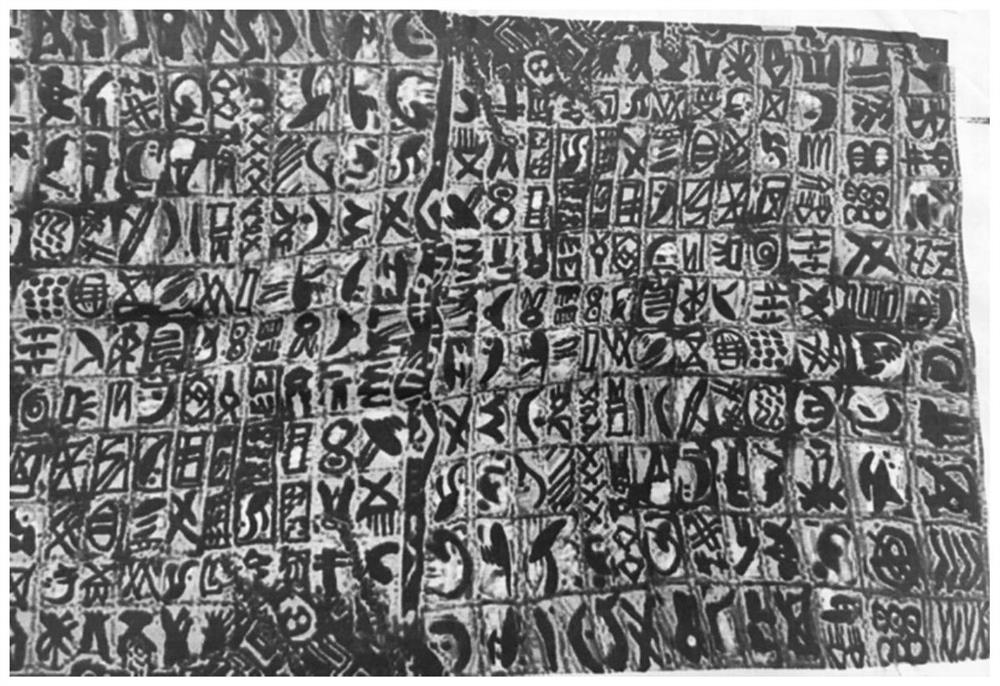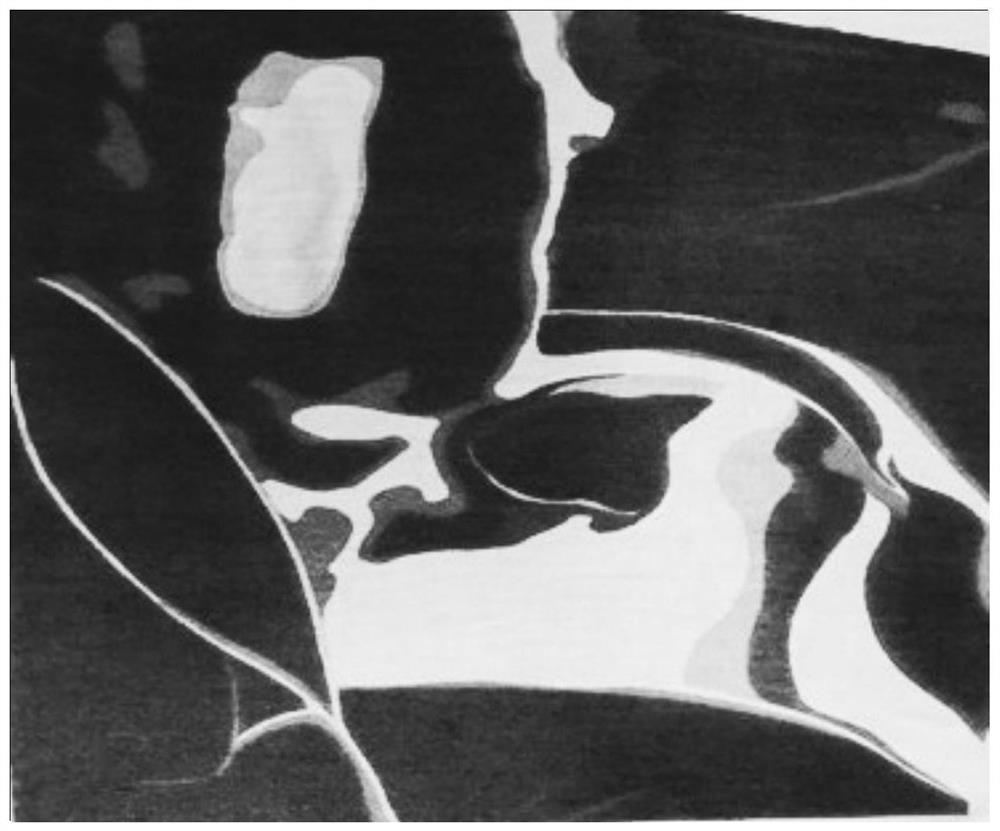Indigo printed fabric and printing method thereof
A printing method, the technology of indigo, which is applied in the field of textile printing and dyeing, can solve the problems of long process cycle and poor printing and dyeing effect, and achieve the effects of high color fastness to washing, shortening process cycle, and high color saturation of patterns
- Summary
- Abstract
- Description
- Claims
- Application Information
AI Technical Summary
Problems solved by technology
Method used
Image
Examples
Embodiment 1
[0035] The present embodiment provides a kind of indigo printed fabric and printing method thereof, and the steps are as follows:
[0036] 1) Pre-treat the fabric. Specifically: scouring and desizing the fabric.
[0037] 2) According to the printing pattern, make the screen printing screen, specifically: film output, screen making and photosensitive drying according to the printing pattern.
[0038] 3) Prepare indigo slurry.
[0039] Add indigo, caustic soda and hydrosulfite in a weight ratio of 1:1:2 to hot water at 60°C, mix and stir for 30 minutes to obtain a mixed solution, the pH of which is 10.
[0040] In the mixture, the following reaction takes place:
[0041] C 16 h 10 N 2 o 2 +Na 2 S 2 o 4 +2NaOH→C 16 h 12 N 2 o 2 +2Na 2 SO 3 ,
[0042] Add acrylic ester copolymer to the above mixed solution, and filter out impurities with a gauze to obtain indigo slurry. The kinematic viscosity of the above indigo slurry is 40mm 2 / s.
[0043] The kinematic visco...
Embodiment 2
[0049] The present embodiment provides a kind of indigo printed fabric and printing method thereof, and step is basically the same as embodiment 1, difference is: in step 3), the preparation method of indigo slurry is as follows:
[0050] Add indigo, caustic soda and hydrosulfite in a weight ratio of 1:1:2 to hot water at 50°C, mix and stir for 30 minutes to obtain a mixed solution, the pH of which is 10.
[0051] Add acrylic ester copolymer to the above-mentioned mixed solution, and filter out impurities with a gauze to obtain indigo slurry. The kinematic viscosity of the above-mentioned indigo slurry is 50mm 2 / s.
[0052] In this embodiment, water is added to the above indigo dye for toning, and the volume ratio of indigo slurry to water is 20:80.
[0053] The indigo printed fabric of the present embodiment is as figure 2 shown.
Embodiment 3
[0055] The present embodiment provides a kind of indigo printed fabric and printing method thereof, and step is basically the same as embodiment 1, difference is: in step 3), the preparation method of indigo slurry is as follows:
[0056] Add indigo, caustic soda and hydrosulfite in a weight ratio of 1:1:2 to hot water at 70°C, mix and stir for 30 minutes to obtain a mixed solution, the pH of which is 10.
[0057] Add acrylic ester copolymer to the above mixed solution, and filter out impurities with a gauze to obtain indigo slurry. The kinematic viscosity of the above indigo slurry is 30mm 2 / s.
[0058] In this embodiment, water is added to the indigo dye for toning, and the volume ratio of the indigo slurry to water is 20-80.
[0059] The indigo printed fabric of the present embodiment is as image 3 shown.
PUM
 Login to View More
Login to View More Abstract
Description
Claims
Application Information
 Login to View More
Login to View More - R&D
- Intellectual Property
- Life Sciences
- Materials
- Tech Scout
- Unparalleled Data Quality
- Higher Quality Content
- 60% Fewer Hallucinations
Browse by: Latest US Patents, China's latest patents, Technical Efficacy Thesaurus, Application Domain, Technology Topic, Popular Technical Reports.
© 2025 PatSnap. All rights reserved.Legal|Privacy policy|Modern Slavery Act Transparency Statement|Sitemap|About US| Contact US: help@patsnap.com



